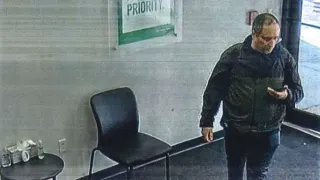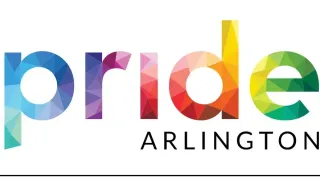November 21, 2015
D.C. Trans Needs Assessment Report Reveals 'State of Emergency'
John Riley READ TIME: 4 MIN.
"There is a state of emergency for trans people in D.C., says Elijah Edelman. "In particular for trans women of color."
Edelman, a member of the DC Trans Coalition and a principal investigator on a recently released survey of transgender residents of the District of Columbia, doesn't mince his words in describing the state of the District's transgender population. "There is a crisis, and the crisis is we're looking at a segment of the population that has totally, utterly been cut out," he says.
The survey, "Access Denied: Washington, D.C. Trans Needs Assessment Report," looks at four years of research data from 521 individuals. It analyses transgender people's experiences with income, education, health, housing, violence, interactions with the legal system and the role played by LGBT organizations in their lives. The results, made public Friday, paint a bleak picture for many transgender residents in the District.
"The most urgent of needs is one that coalesces around a number of issues: intense homelessness, intense unemployment or underemployment, a lack of income, intense poverty, unbelievable rates of HIV prevalence, unbelievable rates of harassment, abuse, suicidal ideation - all of these numbers are just through the roof," Edelman explains.
Among the findings illustrated in the report, workplace harassment and hiring discrimination were rampant among respondents. Forty percent of those surveyed said they had been denied a job because of their gender identity, and 42 percent said they had experienced harassment at work, ranging from inappropriate questions about surgical status, being forced to present the wrong gender, or being denied access to the bathroom consistent with their gender identity. Thirteen percent of respondents said they had been physically or sexually assaulted on the job.
As a result of hiring discrimination, 30 percent of transgender people have been forced to work in the "grey" or underground economy, meaning untaxed activities done off the books, such as babysitting, sex work, unlicensed beauty services, or other jobs with under-the-table wages. Nearly half of all respondents said that their income was less than $10,000 a year.
Additionally, one in five respondents said they were uninsured, and a similar number said they had been denied medical care because of their gender identity. At least 60 percent had considered suicide at some point in their lives, and 34 percent had attempted it - 10 percent having done so in the past 12 months. Of particular concern, 50 percent of transgender individuals said they had a negative experience at an LGBT-specific organization. On almost all metrics, trans people of color and transgender females fared worse than their white and male counterparts.
As part of the report, the investigators included multiple sections labeled "Community Response and Next Steps," where they suggested policies or actions that could be taken to improve these various metrics. With the inclusion of these possible solutions, activists argue, there are no excuses left to justify political inertia.
"Trans people in D.C. have been sharing their experiences for years, and are always asked, 'Where's your data?'" Ruby Corado, Edelman's co-investigator, said in a statement announcing the release of the survey data. "Well, now we have the data, and it paints a grim picture. Political leaders in D.C. no longer have an excuse to ignore the needs of D.C.'s trans residents."
"I was asked the other day what would be the most simple solution to all of these problems," recounts Edelman. "I jokingly said, 'Money.' But that may be what it comes down to. If someone has enough money, or has a job that pays enough, they won't be homeless. They won't necessarily be living on the streets. We know that unemployment, underemployment, homelessness impacts our health, it impacts our mental health, it impacts whether we are HIV-negative, whether it's easier for us to contract HIV, whether or not we're going to be harassed or assaulted."
Edelman notes that D.C. has some of the most progressive policies and laws in terms of transgender rights in the entire country, but says they amount to nothing if there is no enforcement mechanism or accountability.
"What needs to happen now, and hopefully this report will make it clear, is that simply having the policy on the books doesn't mean jack-shit," says Edelman. "It's just there. Unless it's actually being upheld, and we're holding government agencies accountable, and making services accessible, they're useless."
D.C. Councilmember David Grosso (I-At-Large) says he and his staff have reviewed the report, which highlights the problem of translating the District's existing policies and laws into real-life action that guarantees equality to the city's transgender community.
Grosso, the chair of the Education Committee, notes that one of the things that he is working on in committee is developing a yearly school climate survey that would focus on bullying and LGBT issues. The aim is to gauge problems or disparities in treatment in the schools, and then put the proper staff training and resources in place where needed. A partner bill also working its way through committee would address efforts around suicide prevention.
A third bill, dealing with health care-related issues, that is working its way through a separate committee would require all medical professionals in the District to have cultural competency training specifically on LGBT-related issues, which Grosso hopes will address some of the disparities in both physical health and the delivery of culturally sensitive health care that were broached in the Trans Needs Assessment.
"This Access Denied report is extremely important," says Grosso. "I hope that it continues and gets done again. Because its very hard to shift attitudes overnight. You can put all the laws in place you want, but ultimately, we need a full mentality shift in this city...We have to have people out there engaging in communities that are different from their own, and we will grow as a city. This is just one aspect of the big picture, and what we have to do to accomplish equality and fair treatment for everybody in our city."
A copy of the results of the D.C. Trans Needs Assessment Survey can be found on the website of the DC Trans Coalition, at dctranscoalition.org.
 Copyright MetroWeekly. For more articles from MetroWeekly visit
Copyright MetroWeekly. For more articles from MetroWeekly visit 





